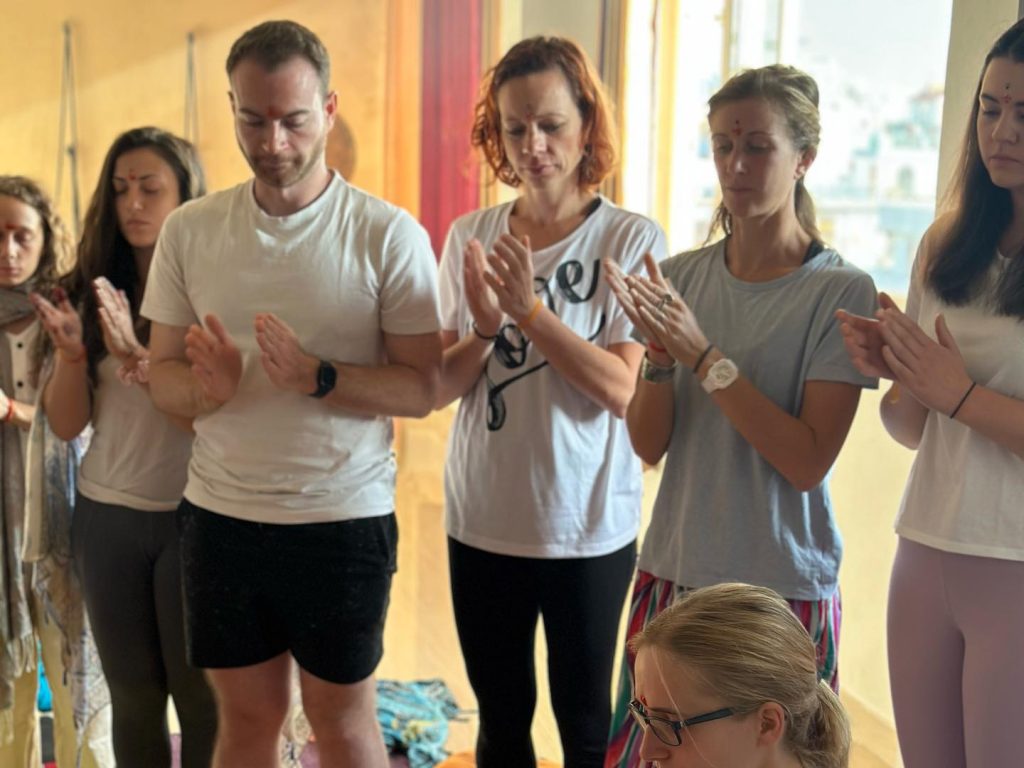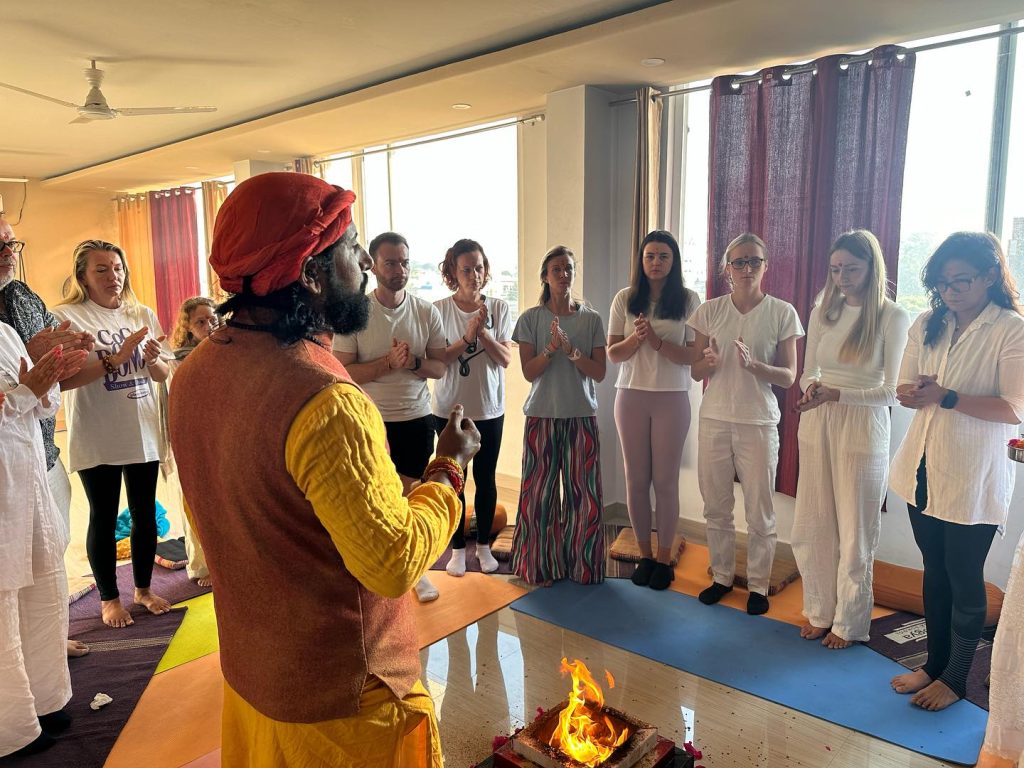
yoga school, often rooted in classical Indian teachings and philosophies, focus on preserving and imparting the ancient wisdom of yoga. Here are some key features of traditional yoga schools:

The term “yoga” has its roots in ancient Sanskrit, and its meaning is rich and multifaceted. The word “yoga” is derived from the Sanskrit root “yuj,” which means to yoke, unite, or join. The holistic concept of yoga encompasses various dimensions, and its meaning extends beyond physical postures. Here are some key aspects of the meaning of yoga:
Yoga
- Union and Connection:
- At its core, yoga is about the union or connection of the individual self (jivatman) with the universal consciousness or divine (paramatman). It signifies the harmonious integration of body, mind, and spirit.
- Harmony and Balance:
- Yoga seeks to bring about balance and harmony within the practitioner. This involves balancing the physical, mental, and spiritual aspects of one’s being.
- Discipline and Practice:
- Yoga involves a disciplined practice aimed at self-awareness, self-discovery, and self-transformation. Regular and dedicated practice is considered essential for progress.
- Path to Liberation (Moksha):
- In traditional Indian philosophy, yoga is viewed as a path to liberation (moksha) from the cycle of birth and death (samsara). It is a journey toward self-realization and enlightenment.
- Mindfulness and Awareness:
- Yoga encourages mindfulness and heightened awareness.
Yoga School Sylabuss and Curriculum
1. Philosophical Foundations:
- Yamas and Niyamas: Emphasis on ethical principles for personal conduct and self-discipline.
- Patanjali’s Yoga Sutras: A foundational text providing insights into the principles and practices of yoga.
2. Comprehensive Curriculum:
- Asanas (Physical Postures): Incorporation of a variety of poses to promote physical health and well-being.
- Pranayama (Breath Control): Techniques to regulate and enhance the flow of life force energy (prana).
- Meditation and Mindfulness: Practices to cultivate mental focus, clarity, and spiritual awareness.
- Philosophy and Yogic Lifestyle: Exploration of yogic principles, diet, and ethical living.
3. Focus on Inner Transformation:
- Traditional yoga schools often prioritize the inner journey and spiritual transformation over physical achievements.
5. Respect for Lineage:
- Acknowledgment and respect for the lineage of yoga teachers who have passed down the teachings.
6. Sanskrit Terminology:
- Use of Sanskrit terminology for poses, principles, and philosophical concepts.
7. In-Depth Study:
- Opportunities for in-depth study of classical texts, including the Bhagavad Gita, Upanishads, and Hatha Yoga Pradipika.
8. Teacher-Student Relationship:
- Emphasis on a close and respectful relationship between the teacher and student.
9. Integration of Yogic Principles:
- Encouragement to integrate yogic principles into all aspects of life, promoting holistic well-being.
10. Spiritual Inquiry:
- Exploration of spiritual themes, self-inquiry, and the ultimate purpose of life.
Examples of Traditional Yoga School:
- Iyengar Yoga:
- Founded by B.K.S. Iyengar, this style emphasizes precision in alignment and the use of props for proper support.
- Ashtanga Vinyasa Yoga:
- Developed by Pattabhi Jois, Ashtanga Vinyasa Yoga follows a set sequence of postures, focusing on breath and movement.
- Sivananda Yoga:
- Founded by Swami Sivananda, this style includes a structured sequence of twelve basic poses along with breathing exercises and relaxation.
- Integral Yoga:
- Developed by Swami Satchidananda, Integral Yoga combines various aspects of yoga, including postures, breathwork, and meditation.
- Hatha Yoga Pradipika Tradition:
- Rooted in the ancient text Hatha Yoga Pradipika, this tradition emphasizes the practice of asanas, pranayama, and meditation.
bottom line
Ultimately, the bottom line is finding a yoga school that resonates with you on a personal and spiritual level. Take the time to research, visit if possible, and make an informed decision based on your unique needs and aspirations.







